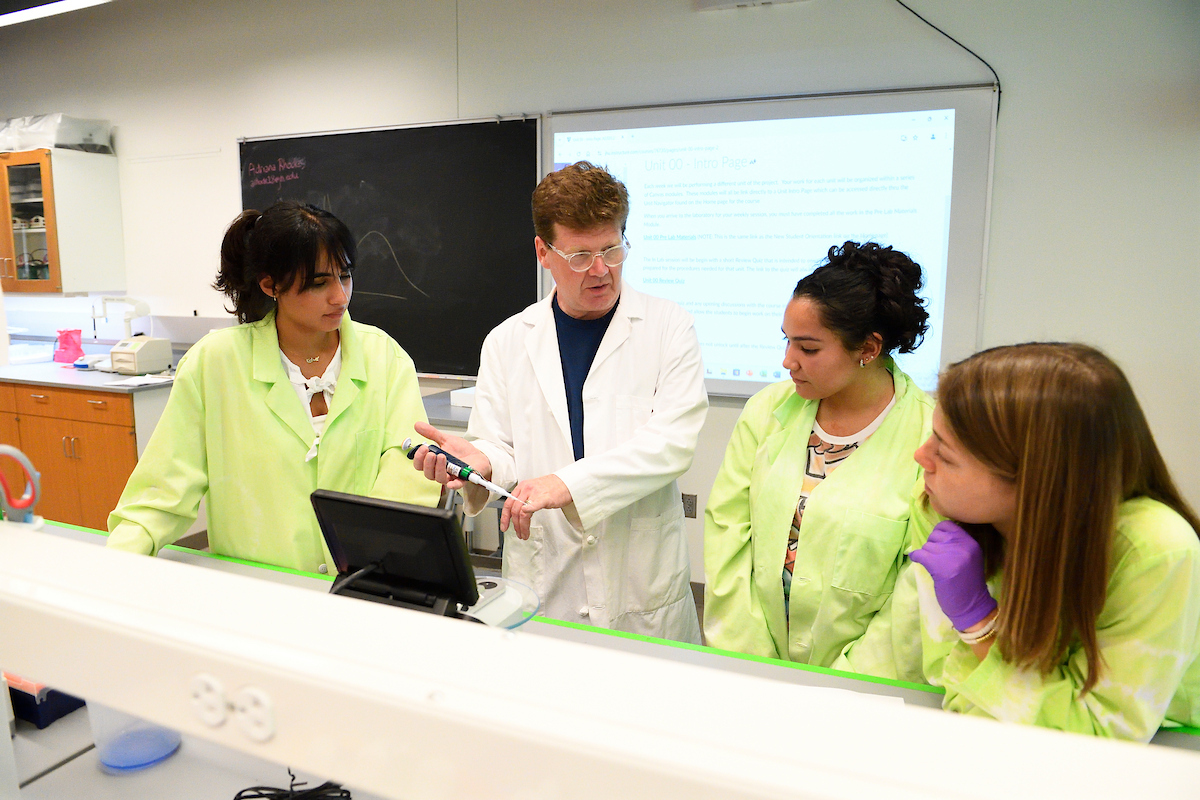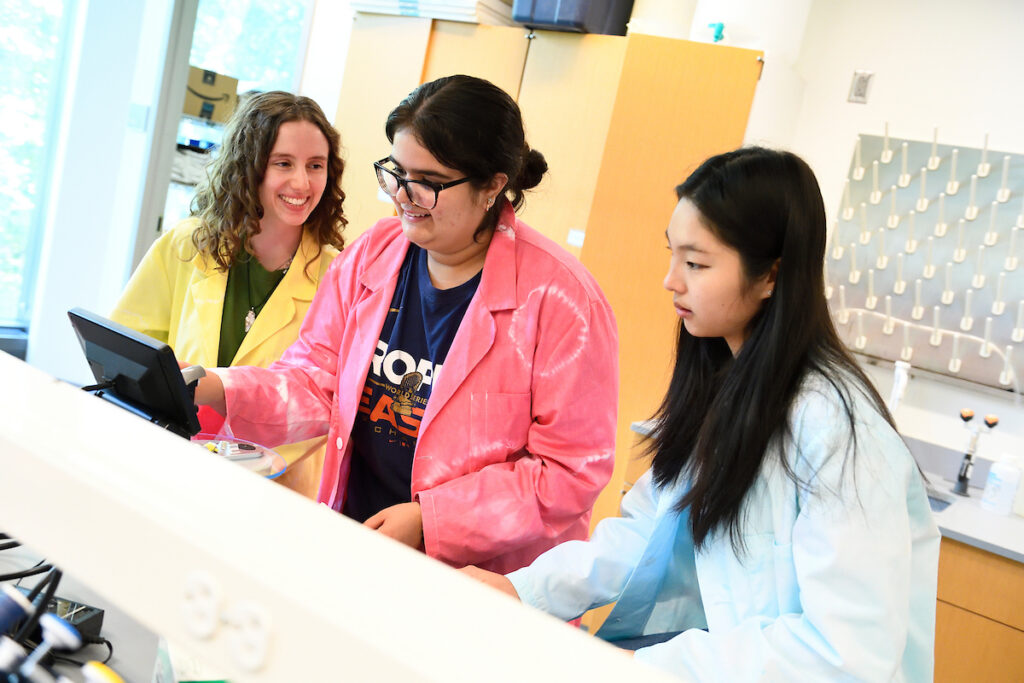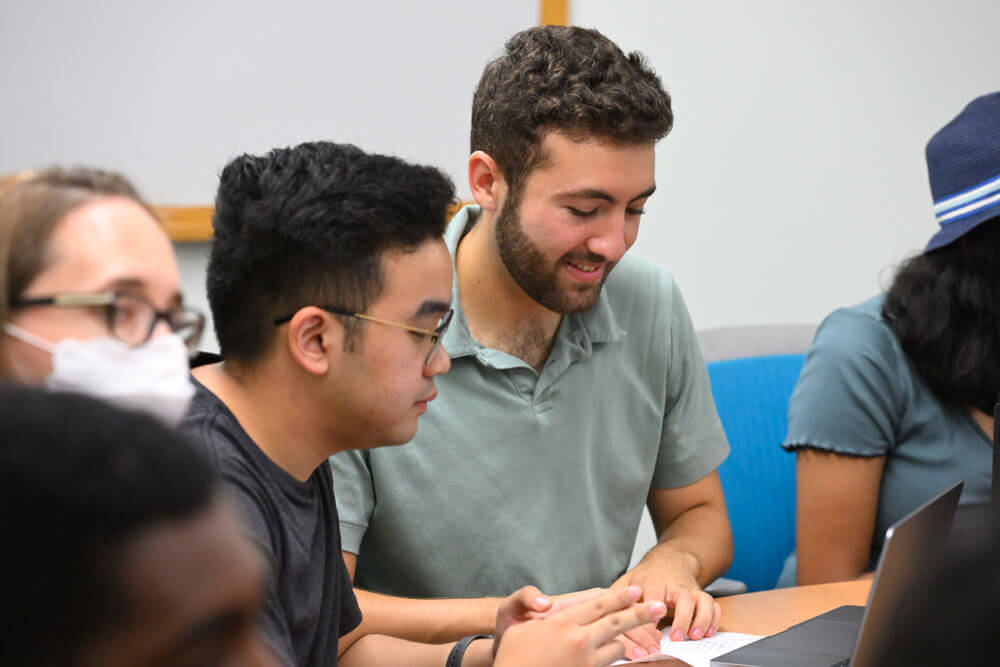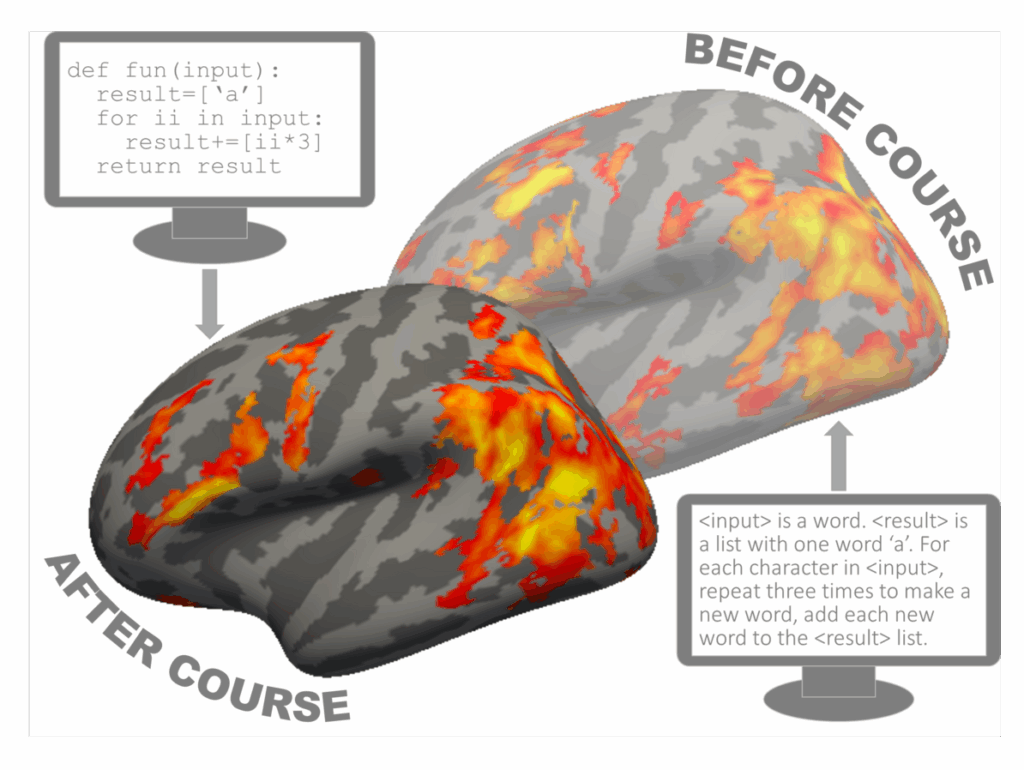Neuroscience

Understand how the brain processes information about the world to generate perception, knowledge, memory, decision, and action.
With the leading faculty and resources of the departments of Biology, Biomedical Engineering, Biophysics, Cognitive Science, and Psychological and Brain Sciences, as well as at the Krieger Mind/Brain Institute and the renowned School of Medicine, you’ll study the nervous system at many levels.
This innovative, interdisciplinary program offers a broad perspective of neuroscience and more advanced training in one of four specialized areas: cellular and molecular, cognitive, computational, or systems neuroscience. You’ll be able to take advantage of many opportunities for experiential learning, such as working as research assistants, research technicians, or lab aides.
CLASSES YOU MIGHT TAKE

Cracking the Code: Theory and Modeling of Information Coding in Neural Activity
One of the most foundational concepts in neuroscience is the idea that neural activity encodes information about an animal’s sensory environment and internal mental states. In this course, we’ll discuss primary research articles on neural representation and information processing, and you’ll implement computational analyses that address issues in these domains.

Neuroeconomics
Everyday decisions often require us to weigh the costs and benefits of engaging in a particular course of action in order to obtain some expected outcome. Unfortunately, we often lack the information necessary to obtain our desired goal with complete certainty. This course will survey the field of Neuroeconomics focusing on theoretical concepts developed by economists and the role these theories are playing in guiding current experimental neuroscience.

Applying Cognitive Neuroscience to Artificial Intelligence Part I
As a result of greater computing power and Big Data, artificial intelligence (AI) is rapidly improving for well-defined tasks and narrow intelligence. But will AI ever have human-like general intelligence? What does humanlike general intelligence even mean? Why should we even care? This course gives you working knowledge of the underlying principles and mechanisms of human behavior and cognition, and how they may be applied to solving current and rising industry challenges.
Faculty Spotlight


Join the Club
Hopkins students are eager to pursue their interests outside the classroom. With 400+ registered student organizations, here are just a few you could join: